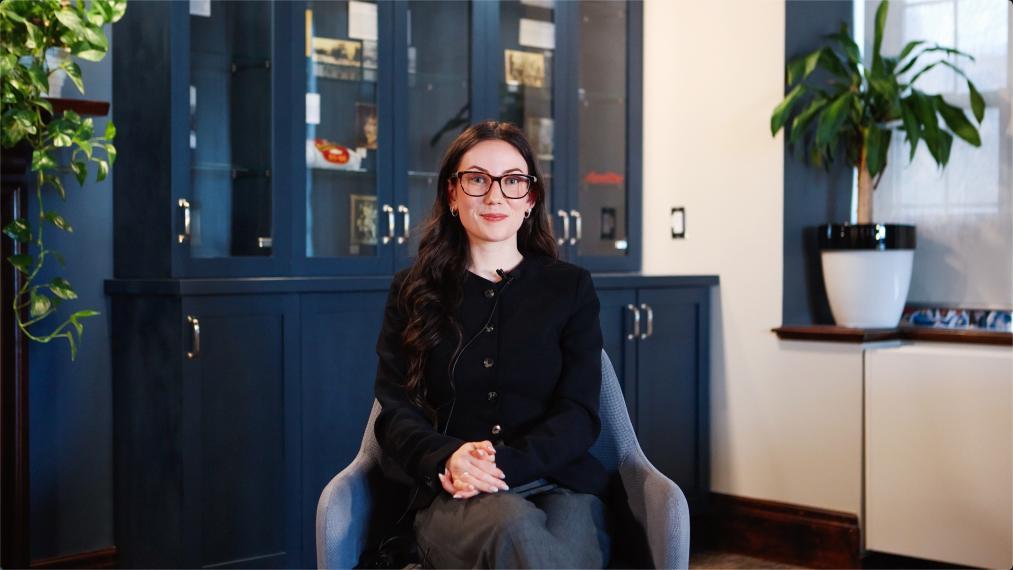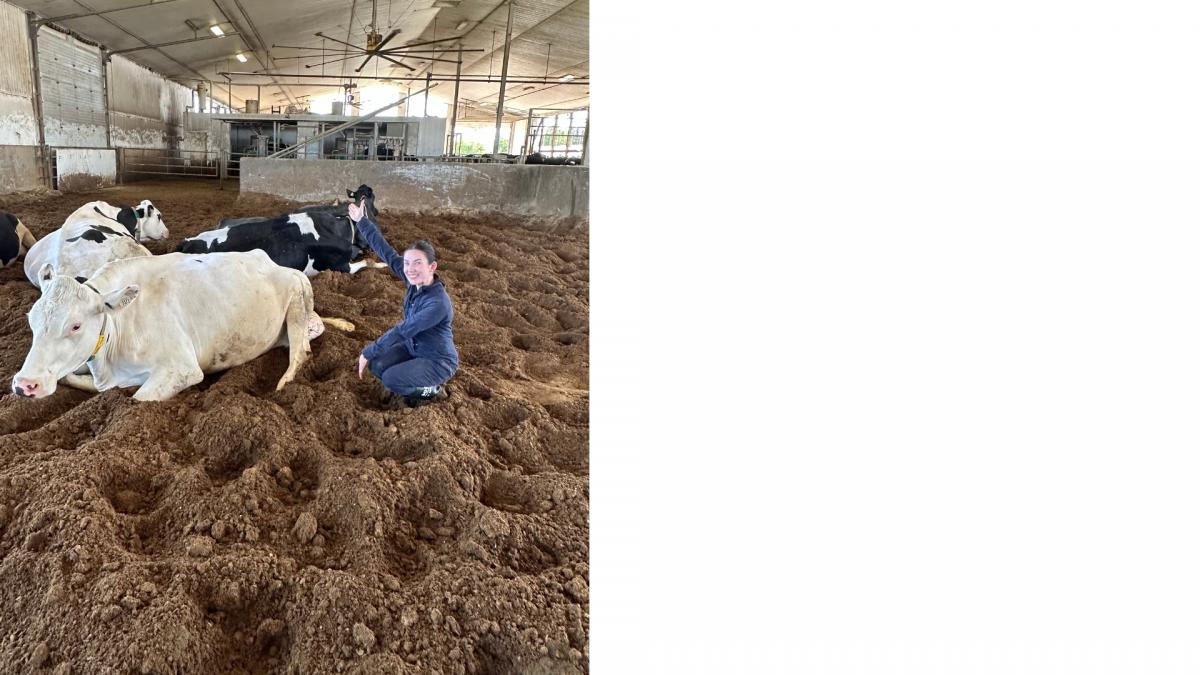The Value of a Master’s Degree: Kendra Gillett’s Path to a Career in Animal Health

Pursuing your master’s degree can be daunting. For MSc student Kendra Gillett, completing her graduate degree was a journey in professional and personal development. Kendra is about to launch her career as a Dairy Sales Technology Specialist and credits her growth to her thesis-based master’s degree. Read Kendra’s OAC graduate student story below:
Many students finishing their undergraduate degree wonder if graduate school is the right step for them. Some question whether they have the skills, experience, or even a clear enough career goal to justify the extra years of study. I saw graduate school as an opportunity to gain hands-on experience, build a strong professional network, and to set myself up for a career that I’m truly passionate about. As a recent graduate of the research-based MSc in Animal Biosciences, I’m about to start a new role as a Dairy sales technology specialist for MS Schippers, proving that my master’s degree has been a valuable steppingstone to my career journey.
The most fulfilling part of my master’s degree
Each step in my thesis had something that was fulfilling and allowed me to appreciate each step in the process. Of course, the completion of writing your thesis and then the successful defence of your thesis are major milestones that are exciting and fulfilling. But, there are small moments along the way, for example, the first time you present your research outside of the university, or when you are speaking with the stakeholders who your research will directly impact, these moments will give you a sense of pride and confidence that what you are doing is impactful and important.

Completing my master’s was the right choice for my career journey
I have always loved learning and challenging myself. I knew that I wanted to find a career that I was passionate about, but also a career that allowed for growth and more opportunities along the way. I chose to do an MSc so that I could build the fundamentals to be successful in my career while also learning about an industry I am passionate about. I also recognized that graduate studies at U of G provided invaluable networking opportunities, helping me discover career paths or opportunities I may not have considered before.
How the program helped prepare me for this role
Job opportunities post-grad is very similar to finding an advisor for grad school – lots of applications and conversations to find the best fit! One of the main things I learned through my MSc was how to communicate my very niche complex research to different audiences, I found this to be particularly useful when interviewers ask me the question ‘so tell me about yourself’. Graduate school challenges you to critically evaluate concepts across different contexts. This experience has strengthened my ability to craft compelling cover letters and perform well in interviews by identifying the strengths and experiences that best demonstrate my fit for a role.
Why I choose U of G for my undergrad and master’s
I wanted to study animal welfare, specifically looking at best management practices on farm and animal behaviour. In Canada, U of G has the most animal welfare scientists and there is also the Campbell Centre for the Study of Animal Welfare (CCSAW), where I would be able to connect with other like-minded individuals to learn as much as possible! I thought Guelph would have the most opportunity for me in the field of animal welfare so that is why I decided to pursue a MSc here! U of G is a wonderful campus - everyone is very friendly and I was able to build a community on campus to help support me through my studies. There was the challenge of navigating a new city and university but now it feels like home.

My master’s degree helped me develop professionally and personally
I took on many opportunities that were out of my comfort zone, for example competing in oral competitions, each time I completed one of these experiences I felt more confident for the next time and I learned things along the way of how I could improve. At many networking events I went to I did not know anyone, so I had to go up and introduce myself if I wanted to network, learn and make the most of the opportunity, by doing this I practiced and refined my soft skills – the soft skills I am now using in my job interviews.
Why a research-focused master’s was right for me
I wanted to get as much hands-on experience as possible, to try something I had never done before, to be in charge of my own project, and to keep all future opportunities (like a PhD) open. I have always been good at time management (I never pulled an all-nighter in undergrad) so the self-directed aspect of a thesis did not scare me off! Course-based masters are great for students who need more structure or who have some work experience under their belt and have specific career advancement in mind they need a master’s for.
My advice for current undergrad students considering a master’s
Ask lots of questions, to your profs and TA’s, and take every opportunity you can to get experience and learn. That could be volunteering in a lab or getting a summer job helping other grad students with data collection.